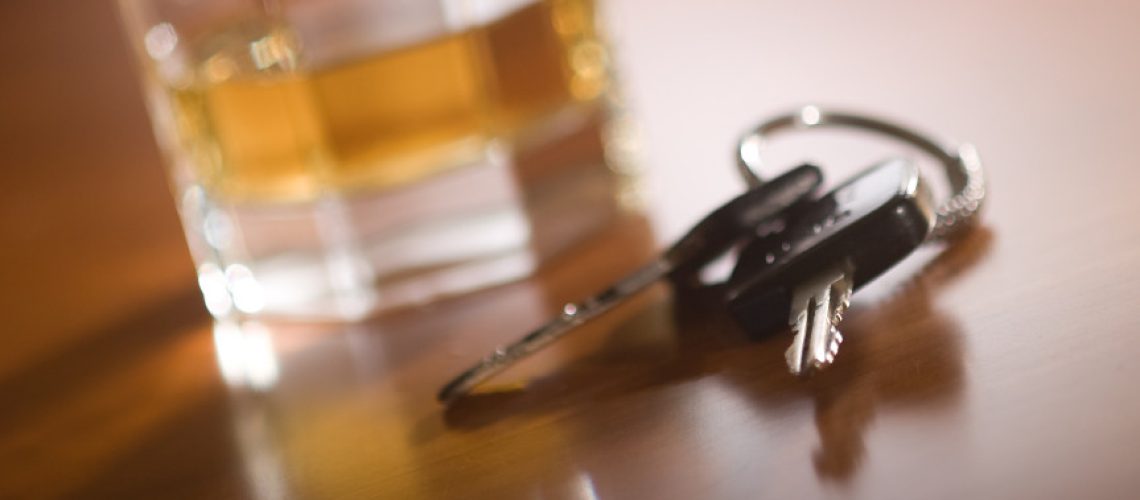Is South Carolina’s DUI law truly zero tolerance?
Though South Carolina’s DUI law is advertised as zero tolerance, that’s not exactly the case.
“To the state’s credit, the state has done a very effective job,” said John Bateman, a defense attorney who works with DUI cases. “Drive down Interstate 385, you’ll see a sign that says don’t drink and drive, it’s the law. That is a falsehood and an outright fabrication.”
More: South Carolina’s DUI offenders can get back on the road with few consequences
More: Greenville has highest DUI fatality rate in SC, and some say lawmakers aren’t doing enough
Zero tolerance applies to drivers under 21 years of age who can be convicted of DUI if their blood alcohol level measures at least .02. Drivers over age 21 can legally drive after drinking, provided their blood alcohol level remains below .08.
What happens if I’m pulled over for a DUI?
If you’re pulled over under the suspicion of DUI, the law enforcement officer who pulls you over will ask you to take some field tests to help determine whether you are driving above the legal blood alcohol concentration limit of .08. Failing a field test typically means you’d be asked to submit to a DataMaster test, or what is commonly referred to as a Breathalyzer.
Can I refuse the field tests and/or DataMaster?
You may refuse the field tests and/or Breathalyzer and other tests, but refusal comes with immediate consequences due to South Carolina’s implied consent law.
The law says licensed drivers in South Carolina are agreeing to take these tests if pulled over under suspicion of DUI. Refusing to do so will result in an immediate six-month license suspension.
What happens after I’m charged?
Typically, you’d spend the night in jail and bond out the next day. DUI defense attorney John Bateman said many of his clients call him shortly after they receive the charge.
Drivers charged with DUI have three options when it comes to facing the charge – they can opt to plead guilty in magistrate court and accept the penalties that come with the charge; ask for a bench trial, during which they’d face a magistrate judge and the arresting officer would typically serve as prosecution; or they can request a jury trial.
Requesting a jury trial moves the case to general sessions court where it is assigned a prosecutor to replace the law enforcement officer. Requesting a jury trial also gives the defense access to the evidence against the defendant.
How long does it take to resolve a DUI case?
If a driver chooses to plead guilty or have a bench trial, the case is usually resolved quickly.
Requesting a jury trial results in a delay. 13th Circuit Solicitor Walt Wilkins said DUI cases take around six to nine months in Greenville County and closer to a year in Pickens County.
Wilkins said the goal of his office is to resolve those cases within six months because that’s when they have the best conviction rate.
What is the penalty for DUI first offense?
If convicted, first time offenders can face anywhere from 48 hours to 90 days in jail, depending on their BAC at the time of the arrest, as well as the possibility of fines up to $1,000. The driver’s license must also be suspended for six months upon conviction, according to state law.
South Carolina’s Ignition Interlock requirements kick in on the first offense if a person’s BAC measures .15 or higher.
What is an Ignition Interlock Device?
The ignition interlock device requires the driver to blow into the device to show that they are not impaired before starting the vehicle, though Bateman points out the use of the device doesn’t solve all issues of DUI because it cannot detect drugs other than alcohol that might impair a person’s driving.
How does South Carolina’s law compare to other states?
Both North Carolina and Georgia scored higher than South Carolina on a 2018 analysis of state DUI laws shared by Mothers Against Drunk Drivers.
MADD measures states on five metrics: The presence of an all-offender interlock law; sobriety checkpoints; license revocation; child endangerment and no refusal. States can score up to five points.
No state scored a perfect five.
South Carolina came in near the middle of the pack with a score of 2.5, which is .5 below neighbors Georgia and North Carolina.
According to MADD, South Carolina could improve its DUI enforcement by making child endangerment a felony instead of a misdemeanor, increasing sobriety checkpoint frequency and creating an all-offender interlock law that would require an interlock device on the vehicles of anyone convicted of DUI.
More: South Carolina’s deadly roads: Why people keep dying and what can be done to stop it
What evidence does the prosecution need to get a DUI conviction?
South Carolina law has strict requirements for evidence against people accused of DUI.
A video recording amendment added to the law in 2009 requires field sobriety and breath tests to be recorded on video and “include the entire breath test procedure.”
As a results, some judges and magistrates have interpreted the law to mean the subject must be in full view of the camera at all times, without interruption. If a video doesn’t meet that requirement or other similar requirements, it can be challenged and even labeled inadmissible for use in a trial.
While prosecutors like Solicitor Walt Wilkins say the requirements are too strict, defense attorneys like Greenville-based John Bateman argue that the law is meant to protect people’s constitutional rights.


